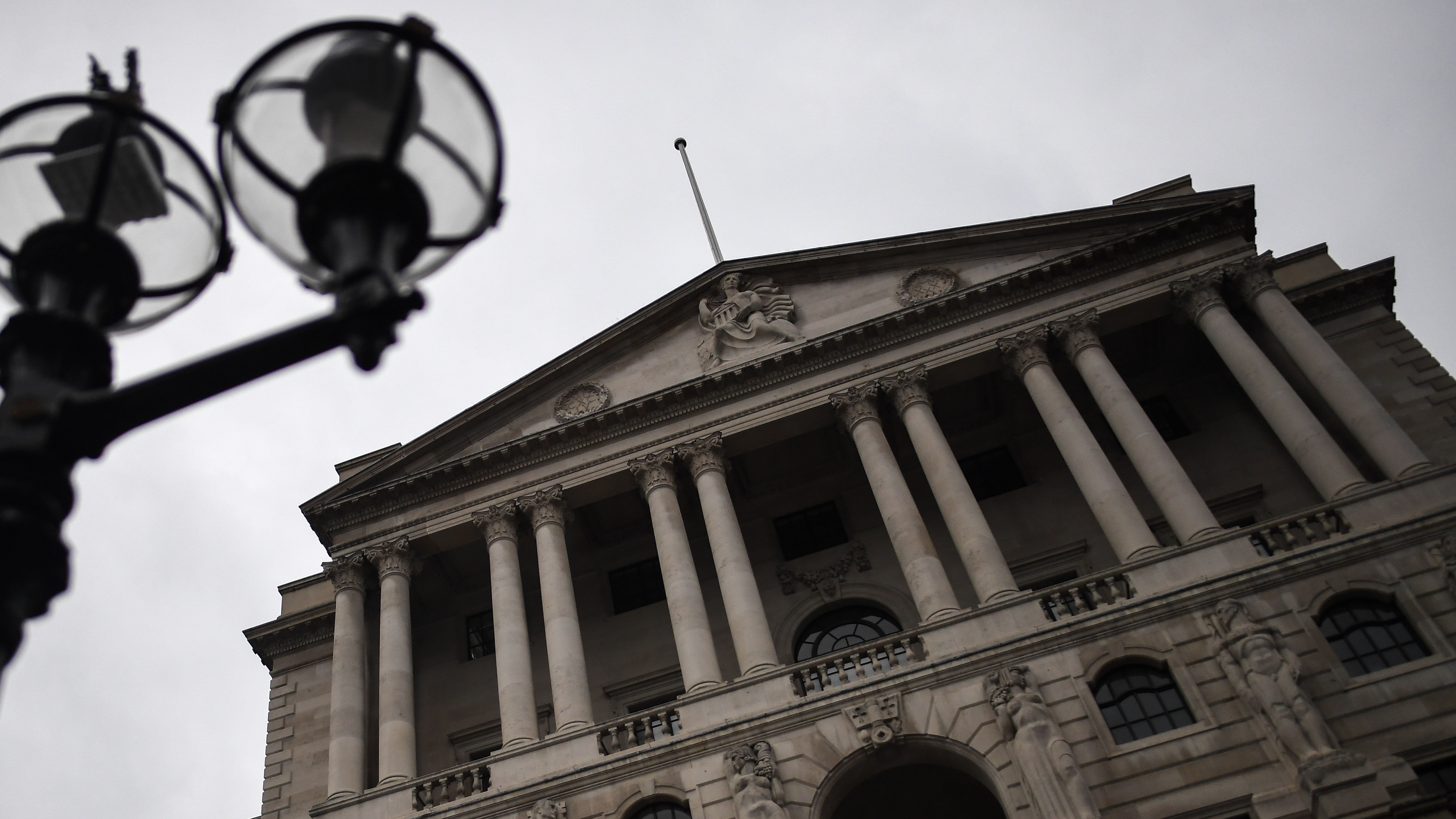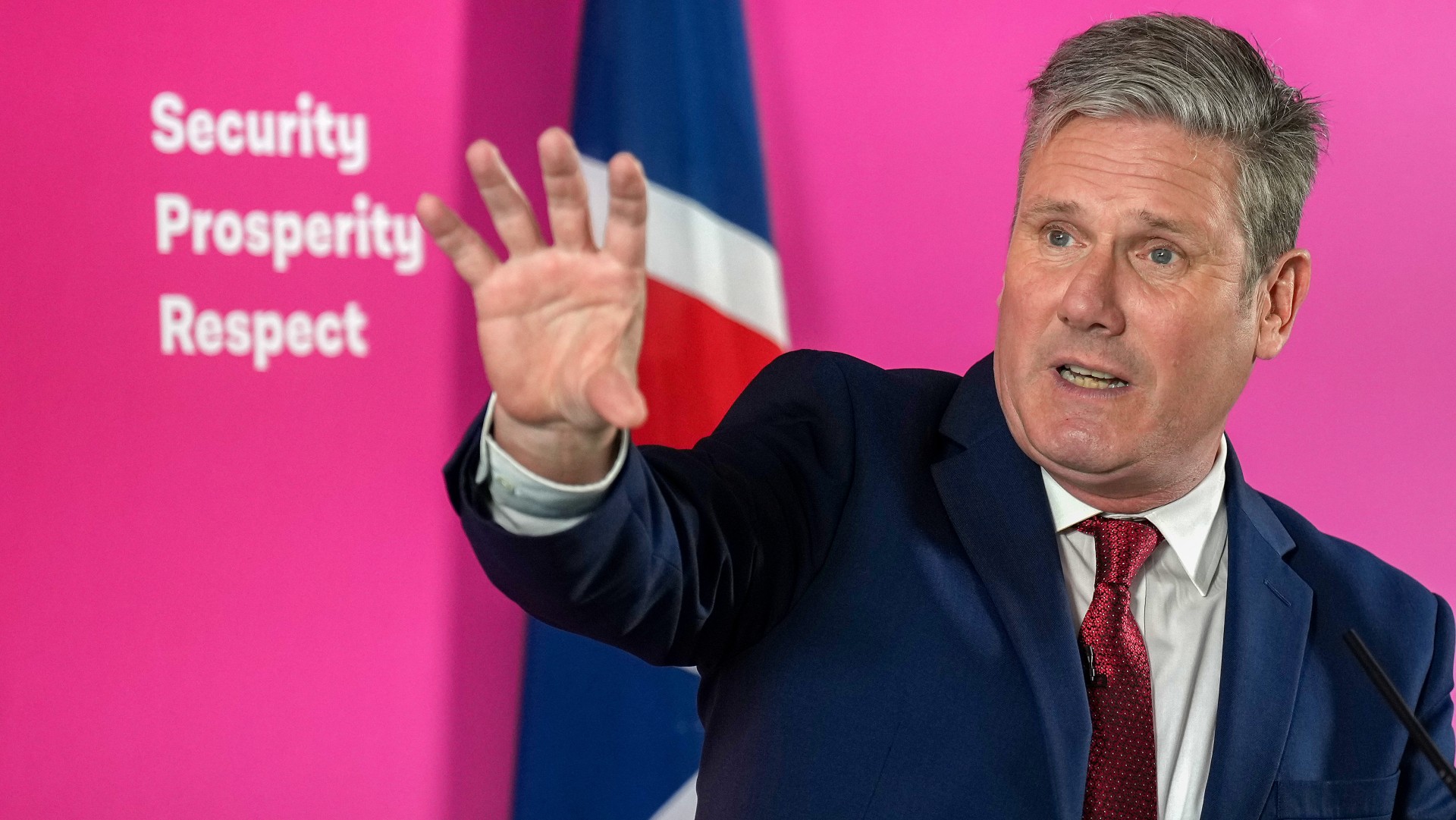Are UK pensions safe?
Bank of England governor says its debt market support must end – but the multi-billion-pound scheme could be extended

A free daily email with the biggest news stories of the day – and the best features from TheWeek.com
You are now subscribed
Your newsletter sign-up was successful
Pension funds are facing a “cliff-edge” after the Bank of England (BoE) warned that its emergency intervention in the UK’s debt market will come to an end on Friday.
BoE governor Andrew Bailey had been urged to extend the central bank’s multi-billion-pound bond-buying programme, which has been propping up pension funds. But in a “blunt” statement on Tuesday evening, he told investors they had three days to prepare for the support to end, said the BBC.
Speaking to the BBC after his statement, Bailey said that pension funds had “an important task” to ensure they were resilient. “I’m afraid this has to be done for the sake of financial stability,” he added.
The Week
Escape your echo chamber. Get the facts behind the news, plus analysis from multiple perspectives.

Sign up for The Week's Free Newsletters
From our morning news briefing to a weekly Good News Newsletter, get the best of The Week delivered directly to your inbox.
From our morning news briefing to a weekly Good News Newsletter, get the best of The Week delivered directly to your inbox.
The pound dropped sharply against the dollar following the announcement, hitting $1.09 for the first time since the Bank announced its emergency intervention on 28 September, as investor hopes for further intervention were “dashed”, said the broadcaster.
But the Financial Times (FT) suggested the BoE could be prepared to extend the emergency bond-buying scheme “if market conditions demanded it”. Pension funds have said that they need more time to “shore up their derivative strategies” before central bank support ends, to avoid a repeat of the sell-off that forced the Bank to intervene last month, said the paper.
What did the papers say?
“Final salary pension schemes running out of cash was not a crisis that many people had predicted,” said the Investors’ Chronicle. The crisis was sparked late last month when chancellor Kwasi Kwarteng announced a series of unfunded tax cuts in his so-called ‘mini-Budget’.
In the end it ended up as a somewhat larger fiscal event, with Kwarteng’s mini-Budget “sparking investor fears over the UK’s financial stability”, said the BBC. It resulted in a “major sell-off” in the bond market, leaving pension funds – which are major investors in government bonds – stuck in a “doom loop”, where they were forced to sell off more government bonds, reportedly leaving some pension funds close to collapse, according to Politico.
A free daily email with the biggest news stories of the day – and the best features from TheWeek.com
It was only when the BoE stepped in and pledged to buy up to £65 billion of government bonds, known as gilts, until 14 October that the “doom loop” stopped and pension funds “gained time to meet cash calls and stop the contagion from spreading”.
The problem originated from what are called liability-driven strategies (LDI), “a term that refers to investment strategies now commonly used by pensions to manage their liability risks” and which “typically include hedging against interest rate and inflation risks” by using government bonds as leverage, explained Investors’ Chronicle.
When the value of bonds fell, investment banks called on these LDI funds to put up assets or cash as securities for loans. Pension funds also began selling their liquid assets, including government bonds, forcing prices to drop even further. The BoE eventually stepped in to stabilise this “vicious circle”.
What’s next?
The BoE has indicated it is unwilling to become a “permanent backstop” for the City which “steps in whenever there is a bit of turmoil”, said The Guardian. This ultimately creates a “moral hazard” that encourages “risky behaviour”. Setting a time limit of the end of the week allows pension funds to “untangle their complex derivative positions, dust themselves down and get back to providing workers with their annual retirement incomes”.
But the BoE has “privately signalled to some bankers” – despite Bailey’s comments on Tuesday – that it could be willing to extend the emergency bond-buying programme past Friday’s deadline. The FT reported that “several bankers” had been briefed by the central bank that officials were closely watching whether LDI managers “have been able to build up enough cash reserves to enable their clients to meet margin calls” before deciding whether to extend support.
Ultimately, the drop in bond prices is likely to help pensions in the long run, said The Guardian. Once pension schemes have “succeeded in solving their liquidity issues”, it means the bonds they hold will “pay a higher rate of interest and over the longer term”.
But it is in the short term that pension funds could face difficulty, as schemes “face the choice of selling higher returning assets to keep their hedges in place, or jettisoning or reducing the protection of the hedging strategy”. If the latter were to happen, then it would “leave pensioners exposed to future swings in rates and inflation”, said the FT.
Sorcha Bradley is a writer at The Week and a regular on “The Week Unwrapped” podcast. She worked at The Week magazine for a year and a half before taking up her current role with the digital team, where she mostly covers UK current affairs and politics. Before joining The Week, Sorcha worked at slow-news start-up Tortoise Media. She has also written for Sky News, The Sunday Times, the London Evening Standard and Grazia magazine, among other publications. She has a master’s in newspaper journalism from City, University of London, where she specialised in political journalism.
-
 Health insurance: Premiums soar as ACA subsidies end
Health insurance: Premiums soar as ACA subsidies endFeature 1.4 million people have dropped coverage
-
 Anthropic: AI triggers the ‘SaaSpocalypse’
Anthropic: AI triggers the ‘SaaSpocalypse’Feature A grim reaper for software services?
-
 NIH director Bhattacharya tapped as acting CDC head
NIH director Bhattacharya tapped as acting CDC headSpeed Read Jay Bhattacharya, a critic of the CDC’s Covid-19 response, will now lead the Centers for Disease Control and Prevention
-
 Six ways to boost your finances in 2026
Six ways to boost your finances in 2026The Explainer It’s not too late to make a new year’s resolution to finally get organised money-wise
-
 The financial impact of returning to work in later life – should you 'unretire'?
The financial impact of returning to work in later life – should you 'unretire'?The Explainer Many people return to the workplace after retirement age, but what could it mean for your finances?
-
 Should the Ofgem energy price cap be scrapped?
Should the Ofgem energy price cap be scrapped?Today's Big Question Poorer households may end up paying more this winter despite cap being lowered from October
-
 State pension underpayments: are you getting the right amount?
State pension underpayments: are you getting the right amount?feature Hundreds of thousands of women may have received less than they were owed
-
 Early retirement: what is the ‘FIRE’ movement?
Early retirement: what is the ‘FIRE’ movement?feature Younger workers are aiming to quit the workforce early through extreme saving and investment
-
 How women can bridge the gender pension gap
How women can bridge the gender pension gapIn Depth New figures have shown the extent of the problem for women in retirement years
-
 How to plug the pension gap by buying National Insurance credits
How to plug the pension gap by buying National Insurance creditsfeature A temporary change in the state pension offers a ‘golden opportunity’
-
 Could Labour solve the cost-of-living crisis?
Could Labour solve the cost-of-living crisis?Today's Big Question Keir Starmer unveils £29bn plan to freeze energy price cap